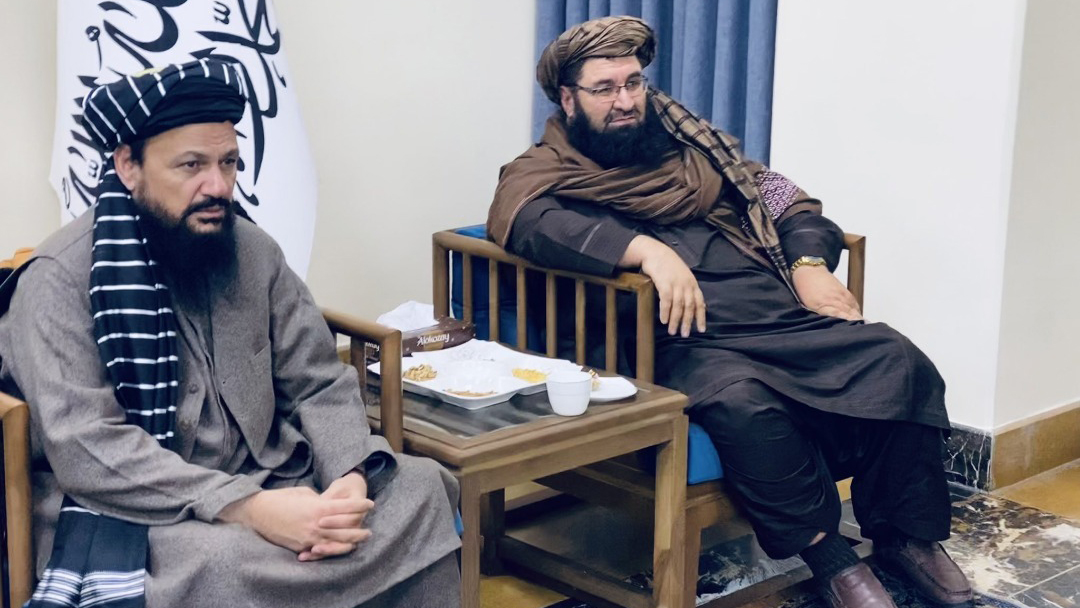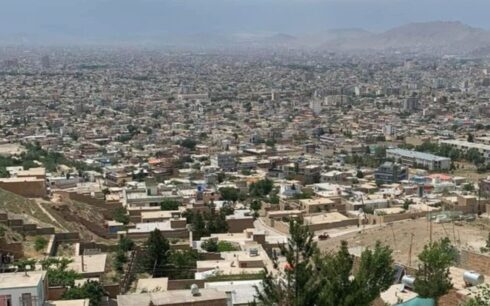The Taliban’s acting energy and water affairs minister Mullah Abdul Latif Mansoor is leading a delegation to Turkey, the second such trip in 10 days, despite a UN travel ban in place.
The Taliban-run ministry’s media office stated that Mansoor, who was among the 13 Taliban officials denied an extension of their travel ban exemption last year by the UN Security Council, will discuss the extension of a contract for imported electricity with Tajikistan’s officials in Turkey.
Mansoor is also expected to meet with a number of Turkish officials.
Gholam Jilani Haqparest, head of information and publications of the ministry of energy and water, said: “A high-ranking delegation, including the executive director of Breshna Company, led by Abdul Latif Mansoor, acting minister of energy and water, traveled to Turkey. During this trip, there will be a discussion with the electricity officials of Tajikistan for the purpose of extending the electricity import contract to Afghanistan. Also, the acting minister will participate in the meetings that will be held about Afghanistan’s energy production and development.”
The Taliban official last week visited Tashkent, Uzbekistan, and discussed issues around the import of electricity with the Uzbek officials.
Sayeed Masoud, an economics analyst, said “despite the travel ban, a trip of a high-ranking official at the ministry level takes place and goes to Turkey, and indeed, the world is completely silent [in this regard]. This is because of the West’s double standard politics toward the Taliban.”
“On the one hand, the West does not recognize the Taliban and says that we do not recognize them because it has not implemented the Doha Agreement, especially in the third and fourth articles; But on the other hand, it is silent against the restrictions imposed [by UN] against this group,” he added.
Wali Frozan, an international relations analyst, said that disagreements among the members of the United Nations Security Council regarding the travel ban on Taliban officials has led to countries disregarding the ban.
“There was a dispute among the permanent members of the UN Security Council regarding the lifting of the Taliban travel restriction, so it was not extended. Countries may use this difference of opinion and invite the Taliban to their countries,” Frozan said.
Mullah Abdul Latif Mansoor told the media that Taliban officials have no restrictions on traveling abroad when it comes to humanitarian issues.
“Acting ministers of the Islamic Emirate (Taliban) who have traveled and this trip is for humanitarian projects, the international community has not done (imposed) anything about it and there is no special adherence. If there was a restriction, [on] this current trip should have been imposed, there is no such problem, Inshallah,” Mansoor said after his return to Kabul from Tashkent.
The UNSC temporarily lifted the travel ban on 13 Taliban officials to allow them to participate in peace talks between the United States and the group in Doha. In August last year, the UN Security Council re-imposed travel bans on 13 senior Taliban members due to increasing restrictions on Afghan women, closure of girls’ schools, arrest and torture of women protesters, violating human rights, and violating the Doha Agreement.
Mullah Abdul Ghani Baradar, Mullah Abdul Salam Hanafi, Mawlawi Abdul Kabir, Amir Khan Muttaqi, Sher Mohammad Abbas Stanikzai, Shahabuddin Delawar, Abdul Haq Wasiq, Khairullah Khairkhah, Mullah Fazel Mazloum, Din Mohammad Hanif, Noor Mohammad Saqib, Noorullah Noori and Taliban’s energy and water affairs minister Abdul Latif Mansoor are senior Taliban members whose travel bans were not extended.





